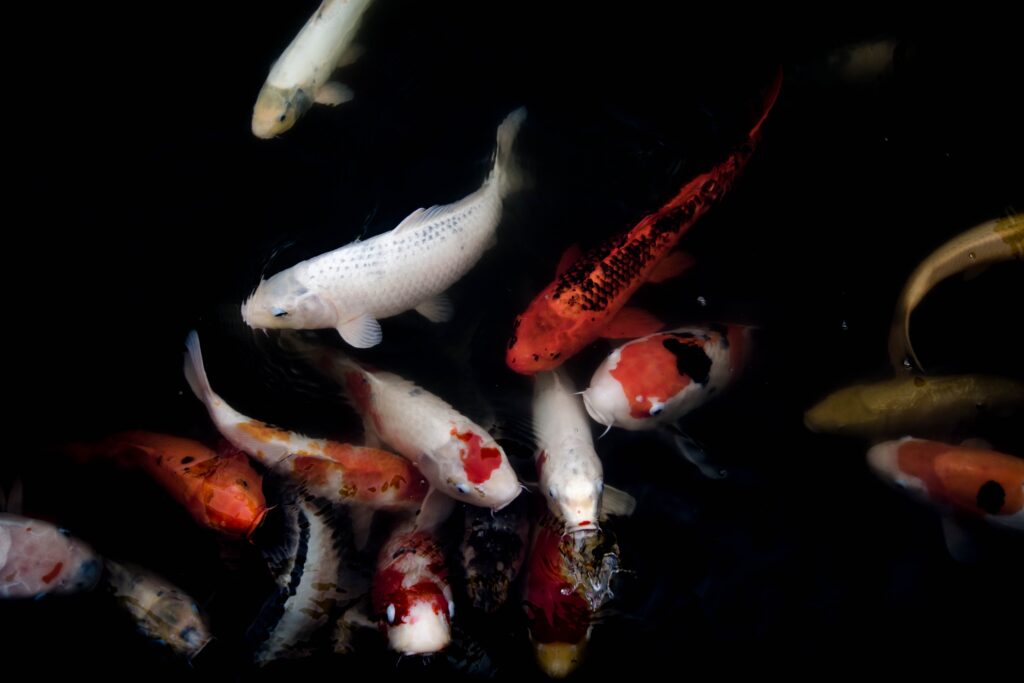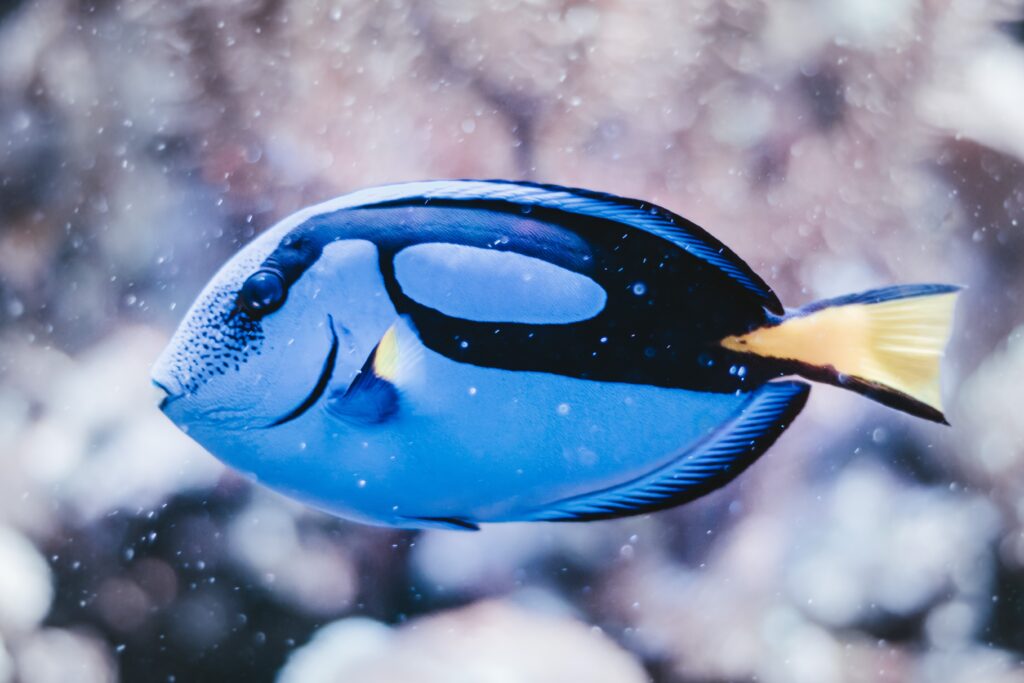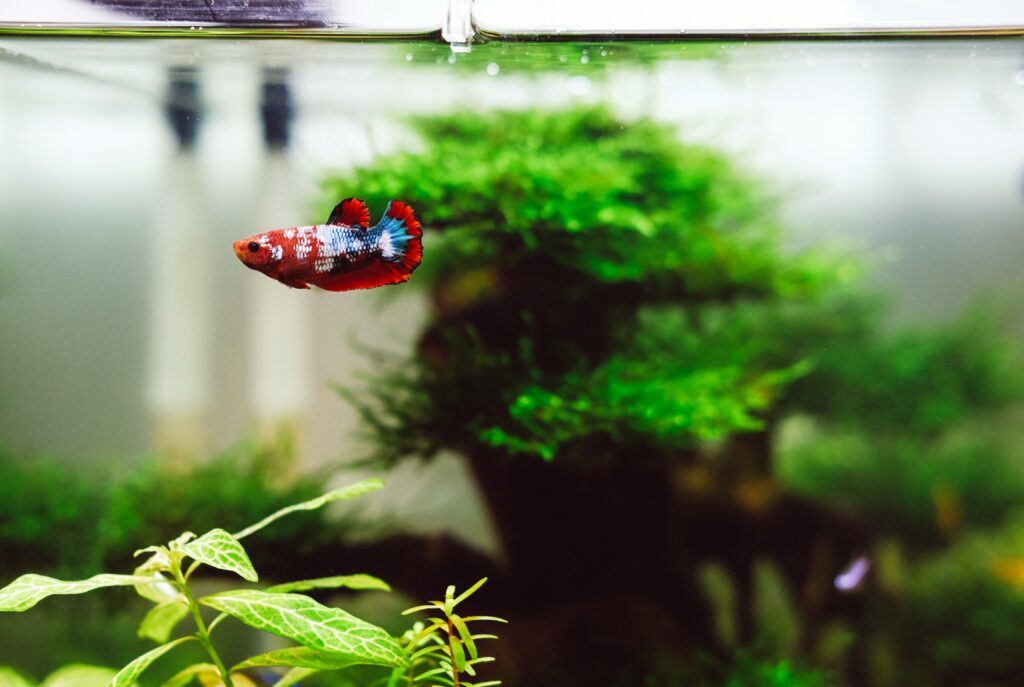
Introduction to Betta Fish

Welcome to our blog, where we dive into the fascinating world of betta fish! These vibrant and mesmerizing creatures have captured the hearts of many aquarium enthusiasts with their stunning colors and graceful movements. But if you’re a proud owner of a betta fish, one question that may cross your mind is: how long can a betta fish go without food?
Proper nutrition is crucial for the health and well-being of any living creature, and bettas are no exception. In this article, we will explore the importance of feeding these beautiful fish correctly, factors that affect their survival how long can a betta fish go without food, signs of starvation to watch out for, tips on keeping them healthy and well-fed – everything you need to know to be an informed caretaker.
So grab your snorkel gear (just kidding!) as we take a deep dive into the world of betta fish nutrition!
The Importance of Proper Feeding for Betta Fish

Proper feeding is crucial for the health and well-being of betta fish. These beautiful creatures require a balanced diet to thrive in their aquarium homes. Providing them with nutritious food not only satisfies their hunger but also supports their overall growth and vitality.
Betta fish are carnivorous by nature, which means they primarily eat meat-based foods. Their diet should consist of high-quality pellets or flakes specifically formulated for bettas. These foods are rich in essential nutrients like protein, vitamins, and minerals that meet their dietary requirements.
Feeding your betta fish the right amount of food is equally important as providing the correct type of food. Overfeeding can lead to obesity and other health issues, while underfeeding can result in malnutrition and stunted growth. It’s best to feed them small portions once or twice a day, ensuring they consume everything within a few minutes. how long can a betta fish go without food
Additionally, variety in their diet is beneficial for betta fish. Supplementing their meals with frozen or live foods such as bloodworms or brine shrimp provides additional nutrients and helps simulate natural feeding behaviors. how long can a betta fish go without food
Remember to remove any uneaten food from the tank after each feeding session. Betta fish have relatively small stomachs, so leftover food can quickly degrade water quality and pose risks to their health. how long can a betta fish go without food
By understanding the importance of proper feeding practices for your betta fish, you’ll be able to provide them with optimal nutrition and support their overall well-being! how long can a betta fish go without food
Factors that Affect a Betta Fish’s Survival without Food
Factors that Affect a Betta Fish’s Survival without Food
Proper nutrition is essential for the health and well-being of betta fish. However, there are certain factors that can affect how long a betta fish can survive without food.
One important factor is the age and overall health of the fish. Younger and healthier bettas tend to have more energy reserves stored in their bodies, which allows them to go longer periods without eating compared to older or weaker individuals.
The temperature of the water also plays a role in a betta fish’s ability to survive how long can a betta fish go without food. Colder temperatures slow down their metabolism, allowing them to conserve energy and survive for longer periods with limited food intake.
Another factor is the size of the tank or bowl where the betta fish is kept. A larger tank provides more space for natural biofilms and algae growth, which can serve as alternative food sources for hungry bettas when they run out of pellets or flakes.
Additionally, stress levels can impact a betta fish’s survival how long can a betta fish go without food. High-stress environments trigger an increased metabolic rate, causing them to burn through their energy reserves quicker than normal.
It’s worth noting that while some bettas may be able to survive several days up to two weeks how long can a betta fish go without food, it is not recommended nor ideal for their overall health and well-being. Regular feeding schedules should always be maintained to ensure optimal nutrition for these beautiful creatures.
Remember, maintaining proper care and providing adequate nutrition will help keep your beloved betta healthy and thriving!
How Long Can a Betta Fish Go Without Food?

Proper feeding is essential for the health and well-being of any pet, including betta fish. These beautiful aquatic creatures have specific dietary needs that must be met in order to thrive. But what happens if you can’t feed your betta fish for a period of time? How long can they go without food?
Betta fish are hardy and adaptable, but they still need regular meals to maintain their energy levels and overall health. While they can survive for short periods how long can a betta fish go without food, it’s not ideal or recommended. A healthy betta fish can generally go about 7-14 days without eating before serious complications arise. how long can a betta fish go without food
Several factors affect a betta fish’s survival how long can a betta fish go without food. These include its age, overall health, water temperature, and previous diet. Younger and healthier bettas may have a better chance of surviving longer periods without sustenance compared to older or weaker individuals.
It’s important to keep an eye out for signs of starvation in betta fish. These may include lethargy, loss of coloration, sunken belly, fin deterioration or clamped fins. how long can a betta fish go without food
To ensure your betta stays happy and healthy during times when you cannot feed them regularly, there are some tips you can follow:
1. Invest in an automatic feeder: This device dispenses small amounts of food at set intervals so your betta will still get nourishment even when you’re away.
2. Arrange for someone trustworthy to feed your fish: If you’re going on vacation or will be away for an extended period of time, ask a responsible friend or family member to take care of feeding duties.
3. Provide plenty of hiding spots: Betta fish naturally eat less when stressed or anxious due to changes in their environment. By adding decorations like plants or caves into the tank, you’ll give them places where they feel secure which may help reduce stress during times when food is scarce. how long can a betta fish go without food
Remember that while it’s possible for a betta fish to survive how long can a betta fish go without food for a short period, it’s always best
Signs of Starvation in Betta Fish

Signs of Starvation in Betta Fish
Proper nutrition is essential for the health and well-being of your betta fish. Without a balanced diet, these vibrant and beautiful creatures can suffer from malnutrition, leading to various health issues. It’s crucial to be aware of the signs that indicate your betta fish may be experiencing starvation.
One common sign is weight loss. If you notice that your betta fish has become visibly thinner or their body shape appears distorted, it could be an indication that they are not getting enough food. Another telltale sign is decreased activity levels. A normally active and energetic betta fish may become lethargic if they are not receiving adequate nourishment.
Additionally, changes in behavior can also suggest starvation in bettas. They may exhibit reduced interest in their surroundings or lose their appetite altogether. Furthermore, physical symptoms such as sunken eyes and pale coloration can be signs of malnutrition.
To ensure your betta fish stays healthy and well-fed, it’s important to provide them with a varied diet consisting of high-quality pellets specifically formulated for bettas along with occasional treats like freeze-dried bloodworms or brine shrimp. Remember to feed them small portions multiple times a day rather than one large meal.
Regular observation and monitoring will help you identify any potential signs of starvation early on so that appropriate action can be taken promptly to address any nutritional deficiencies and maintain the overall well-being of your beloved pet. how long can a betta fish go without food
Tips for Keeping Your Betta Fish Healthy and Well-Fed
Tips for Keeping Your Betta Fish Healthy and Well-Fed
Proper feeding is essential for the health and well-being of your betta fish. Here are some tips to ensure that your finned friend stays healthy and well-fed:
1. Feed a balanced diet: Betta fish are carnivorous, so their diet should consist primarily of high-quality pellets or flakes specifically formulated for bettas. These foods provide the necessary nutrients they need to thrive.
2. Don’t overfeed: Overfeeding can lead to obesity, bloating, and digestive issues in bettas. Feed them small portions two to three times a day, only giving them what they can consume within a few minutes.
3. Provide variety: While pellets or flakes should make up the bulk of their diet, it’s important to supplement with live or frozen foods like brine shrimp or bloodworms occasionally. This adds variety and provides additional nutrients.
4. Avoid overexposure to light: Betta fish are sensitive creatures, and exposure to excessive light can stress them out. Keep their tank in a location where they won’t be exposed to direct sunlight for extended periods.
5. Maintain water quality: Clean water is crucial for the overall health of your betta fish. Regularly test the water parameters such as pH level, ammonia, nitrite, and nitrate levels using appropriate testing kits.
6. Monitor behavior: Pay attention to any changes in your betta fish’s behavior or appearance as this could indicate an underlying health issue or improper nutrition.
By following these tips, you can help keep your beloved betta fish happy and thriving in its environment! Remember that each individual may have specific needs based on factors such as age and activity level; consulting with an aquatic veterinarian can provide tailored advice for optimal care.
Conclusion
Conclusion:
Proper feeding is crucial for the health and well-being of betta fish. While they are hardy creatures that can survive in less-than-ideal conditions, going how long can a betta fish go without food for an extended period can have serious consequences.
Based on their natural ability to withstand harsh conditions in the wild, betta fish can potentially go how long can a betta fish go without food for up to two weeks. However, it is important to note that this should never be taken as a recommendation or practice. Regular feeding is essential to ensure the overall health and longevity of your beloved pet. how long can a betta fish go without food
Neglecting to feed your betta fish regularly can lead to starvation, weakened immune system, organ failure, and ultimately death. It’s essential to provide them with a varied diet consisting of high-quality pellets or flakes specifically formulated for bettas as well as occasional treats like frozen or live foods.
Additionally, factors such as water temperature and activity level also play a role in determining how long a betta fish can go without food. Warmer temperatures increase their metabolism and energy requirements while increased physical activity demands more sustenance.
To keep your betta fish healthy and well-fed:
1. Establish a regular feeding schedule.
2. Provide appropriate portions of high-quality food.
3. Avoid overfeeding to prevent obesity-related issues.
4. Ensure clean water conditions by regularly maintaining the tank.
5. Monitor their behavior and appearance closely for any signs of hunger or illness.
Remember, responsible pet ownership includes providing proper care and nutrition for our aquatic companions like betta fish. By following these tips and guidelines, you will help ensure that your vibrant little friend thrives in its watery world!